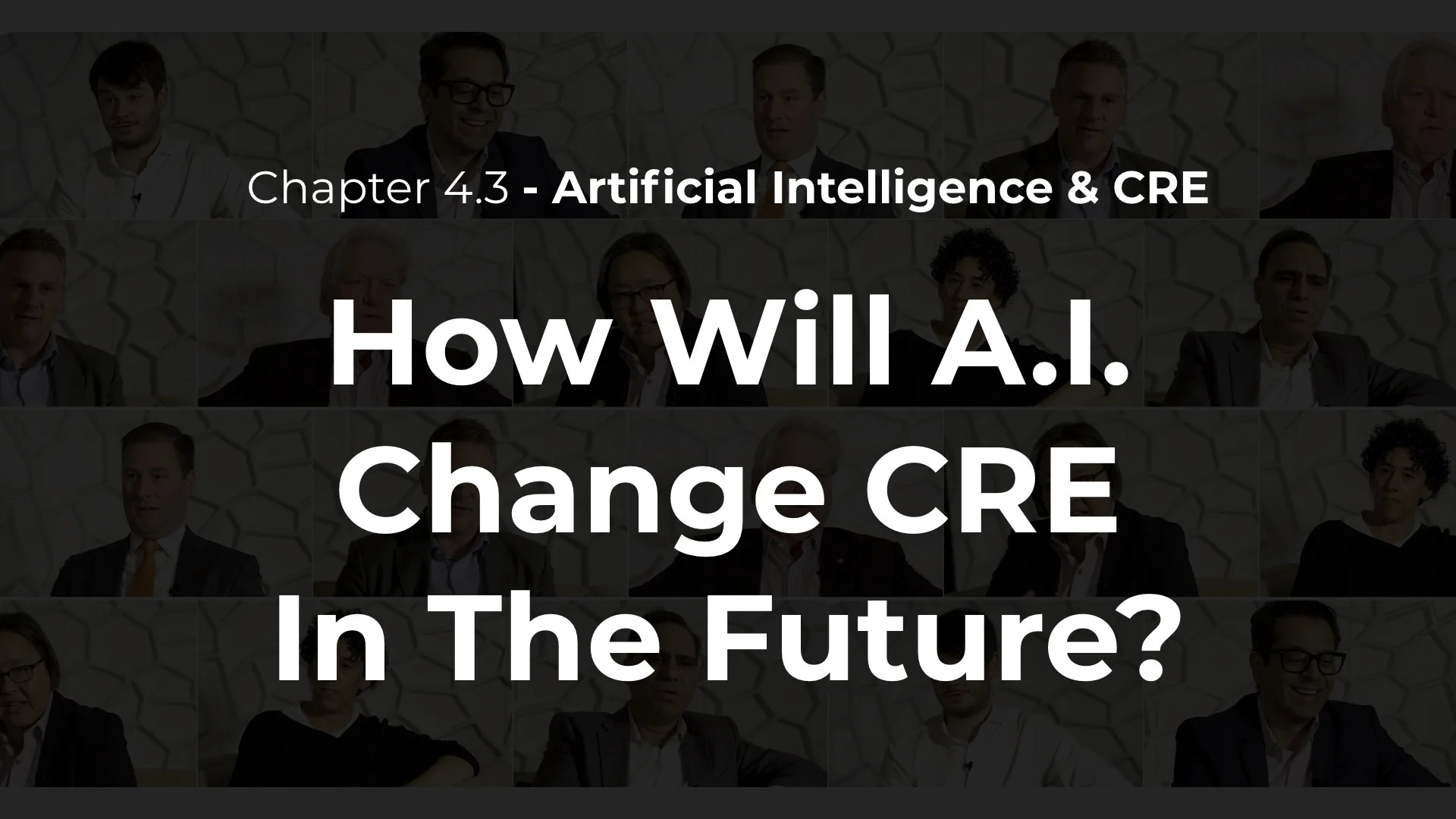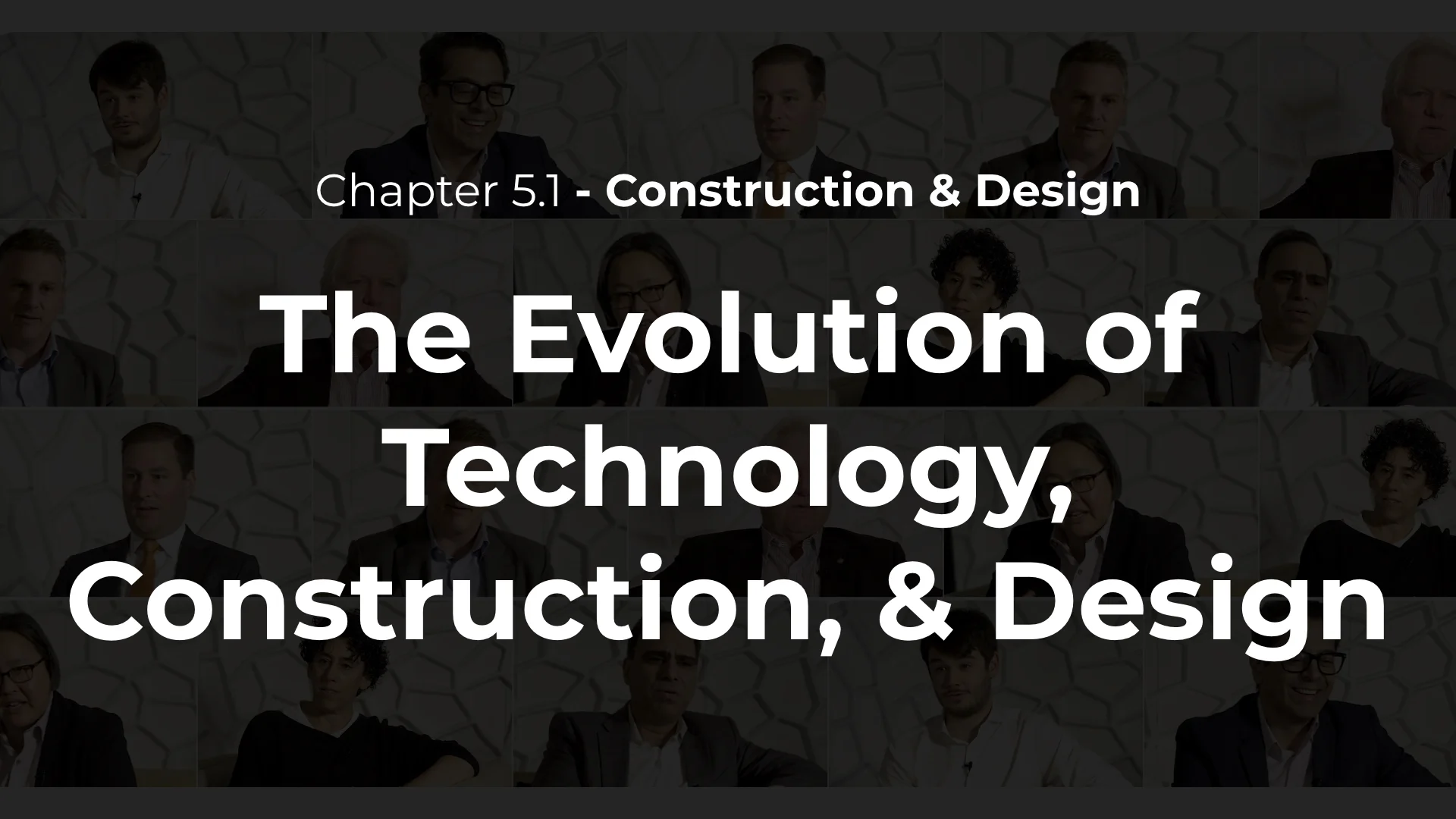Inside CRE Tech • Episode 4.3
How Will A.I. Change CRE In The Future?
Read Transcript:
Hussain Ali-Khan, Global Alliance Director, CBRE
I think though that in the future artificial intelligence can play a really big role in how real estate is managed. A lot of the analog aspect of building operations could be digitized and managed by an artificial intelligence or a model that could create certain types of optimum situations, depending on the types of environment you're trying to create.
John Gilbert, EVP, COO, CTO, Rudin Management
Our buildings will only get smarter. They'll only have more data. And ultimately that data is going to help them be as smart as they can be, deliver a product that people want, as efficiently as we possibly can, and ultimately save a lot of money and keep our buildings full.
Raj Bhatti, CIO, NGKF
A.I. in my mind is that perfect engine, that V8, that will go zero to 60 in three seconds, but without gas that engine is useless, and the gas is the data.
Hussain Ali-Khan, Global Alliance Director, CBRE
I think the future application of artificial intelligence and real estate is going to be really really important because it gives us the opportunity to automate a bunch of different functions that have been very difficult to automate in the past, and will allow us to potentially overcome the coming talent crunch in the technical fields of building operations.
Tama Huang, Chief Innovation Officer, CohnReznick
We're going to shift the way that a workforce is going to work. And from there we're going to shift how much space we need to occupy as a company, the type of talent we're going to be hiring, and the whole body of work is going to change.
John Gilbert, EVP, COO, CTO, Rudin Management
The ability to predict and prescribe what should be done tomorrow based upon what we learned yesterday is what it's all about. And in order to do that you need to have an operating system, an integrated system platform that allows all data to come together, and then ultimately slice and dice that data, and then ultimately to use what I learned today to be better tomorrow.
Tama Huang, Chief Innovation Officer, CohnReznick
The impact of A.I. on every industry will be a workforce impact. And what we're going to get to is a differentiation of knowledge workers, and then kind of commodities work, and down from that truly automated work. So today what a lot of folks have done is said, “Okay this is commoditized, therefore we're going to shift it to a lower cost center,” or, “this is commoditized we're going to insource it into a shared service,” and then we have a specialized knowledge workers that are going to sit in the field. In the future, what we're going to find is that, you know, between artificial intelligence, machine learning, deep neural networks, as well as robotic process automation. A lot of those things are going to get automated.
John Gilbert, EVP, COO, CTO, Rudin Management
On the procurement side, something that every owner has to do in terms of buying electricity buying natural gas buying steam, I'm counting cards. I know when those Jackson aces are coming up. So ultimately I really can zero in on what my loads are. And perfect hedges that will protect me from any type of volatility in the electricity market.
Jack Sibley, Technology & Innovation Strategies, TH Real Estate
So I suppose for us, as a landlord and institutional investor, it's ultimately about making better investment decisions and better asset management decisions. So any insights that help us to improve in either of those areas are going to be the key focus for us the next few years.
Adam Stoltz, National Director, Consulting Services - Transwestern
The first time you go to pull three people together and you know whatever system you're using says “Great. I've picked the room for you,” right. That experience of that interaction is going to be best supported by this space. It's gonna be far different than just going to the eight person conference room that we might have otherwise put ourselves in.
John Gilbert, EVP, COO, CTO, Rudin Management
What we see happening is a lot of these services will be free and they'll be paid for out of those savings that you'll have on procurement.
Kent Tarrach, VP, Asset Management & Global Corporate Development, Brookfield
And we believe that there will be additional cases in the future, but it's a little more of a topic that's a little out there to really fully embrace and so we're working hard but it takes some time.



